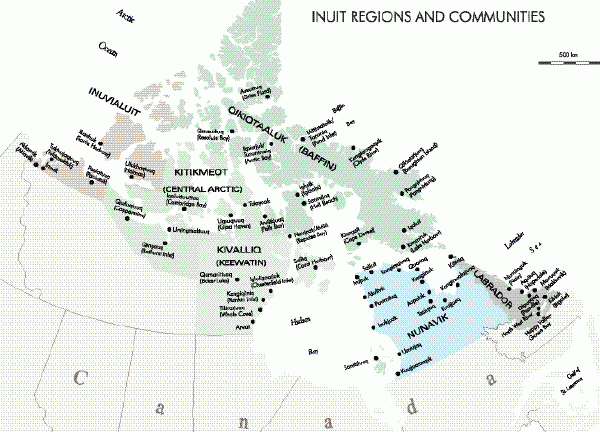|
|
Canku Ota |
|
|
(Many Paths) |
||
|
An Online Newsletter Celebrating Native America |
||
|
July 27, 2002 - Issue 66 |
||
|
|
||
|
Inuit Find Home on the Web |
||
|
by Alfred Hermida
BBC News Online
|
||
|
|
|
One of the oldest indigenous peoples, the
Inuit, have turned to one of the most modern forms of communication
to tell the world about their culture. They have launched a website detailing their 5,000-year-old history, cataloguing their origins, when they first came into contact with white explorers and their struggle for land rights. Part of the reason for setting up the website was to tell the story of the Inuit in their own words, as until now, most of the research on Inuit culture and history has been done by others. "It is a really modern way of reaching the world and teaching the world about the Inuks of Canada," explained Jose Kusugak, president of Canada's national Inuit organisation, the Inuit Tapiriit Kanatami (ITK). "This is an incredible way of reaching out to the world. It is surprising how many people we reach through the site," he told the BBC programme Go Digital. Vast territory Inuit hunters and their families started crossing the 320-kilometres-wide (200 miles) Bering Land Bridge from Siberia perhaps 30,000 years ago, then wandered slowly across the Polar north, reaching Greenland 50 centuries ago. As well as retelling their history, the website also serves as a way of reaching out to the different Inuit groups. The Inuks are spread across a vast territory, stretching from the Chukchi peninsula of Russia, east across Alaska and Canada, to the south-eastern coast of Greenland. The Inuit were an entirely nomadic, hunting people until about 50 years ago, when the central government began an effort to bring them into mainstream Canadian life. They now live across the Arctic reaches of northern Canada, where they are struggling to decrease high rates of alcoholism, suicide, teenage pregnancy and sexually transmitted diseases. "We are a unique people with unique problems," admits Mr Kusugak. But they are also one of the most successful groups of indigenous people in getting their land claims recognised. Writing obstacle The website is currently only in English, but there are plans to offer it in the Inuit native language, Inuktitut. One of the challenges facing the developers is the lack of a standard writing system for Inuktitut, as well as the different regional dialects. "The whole idea is translate the site from English to Inuktitut," said Mr Kusugak. "But the Inuit traditionally did not have a writing system. We are trying to develop one for all the Inuks." "This is all a new world for us, we are just learning about web development."
|
|
|
||
|
|
||
| Canku Ota is a free Newsletter celebrating Native America, its traditions and accomplishments . We do not provide subscriber or visitor names to anyone. Some articles presented in Canku Ota may contain copyright material. We have received appropriate permissions for republishing any articles. Material appearing here is distributed without profit or monetary gain to those who have expressed an interest. This is in accordance with Title 17 U.S.C. section 107. | ||
|
Canku Ota is a copyright © 2000, 2001, 2002 of Vicki Lockard and Paul Barry. |
||
 |
 |
|
|
The "Canku Ota - A Newsletter Celebrating Native America" web site and its design is the |
||
|
Copyright © 1999, 2000, 2001, 2002 of Paul C. Barry. |
||
|
All Rights Reserved. |
||
